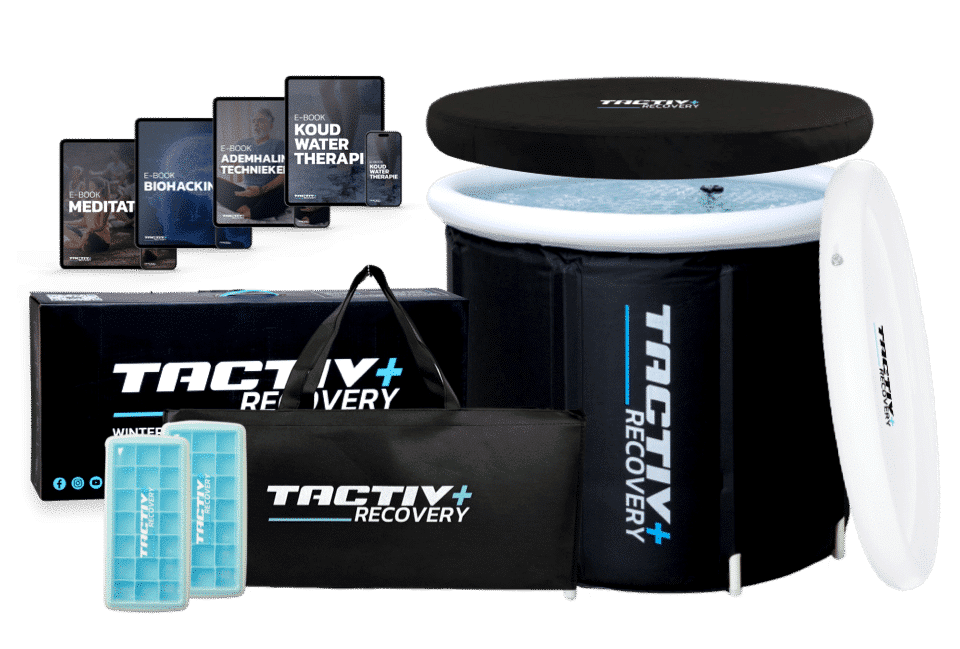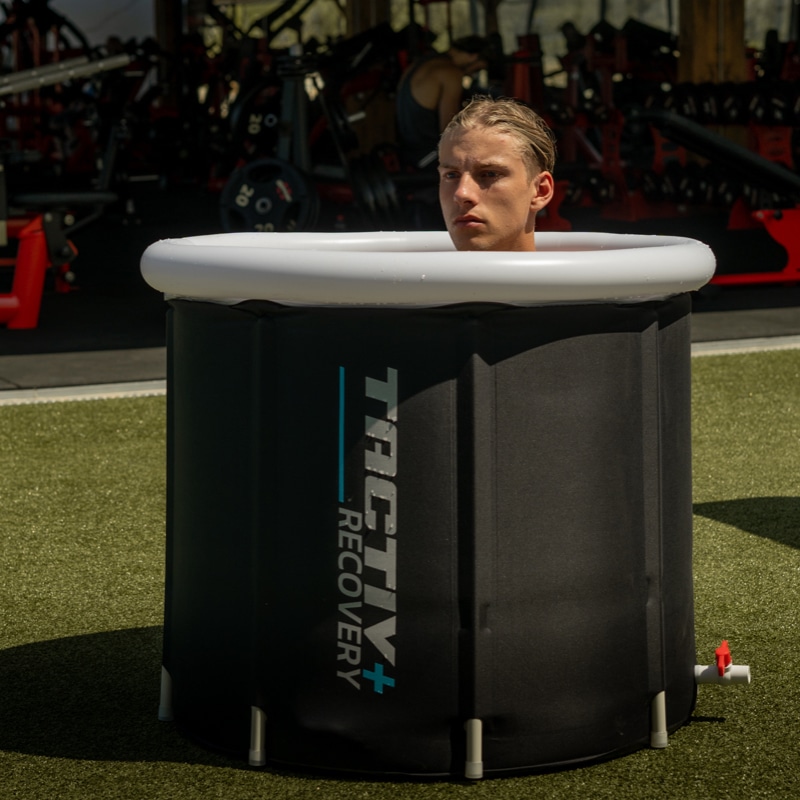Does cold showering have any cons?
Cold showering is often praised for its many health and wellness benefits, from strengthening the immune system to improving circulation and increasing mental clarity. Many experience the refreshing effects of a cold shower and embrace this routine as a daily boost to the body and mind. However, while the list of benefits is long, the question arises: does cold showering have any drawbacks?
In the quest to answer this question, it is important to emphasize that cold showering, like any other health intervention, is not for everyone. While the benefits are widely recognized, there may be disadvantages or risks associated with it in specific cases, mainly for people with certain pre-existing health conditions. In this blog, we discuss the potential disadvantages of cold showering, noting that in most cases these disadvantages do not apply unless one is struggling with specific medical conditions.
How do you deal with the mental challenge of cold showering?
The very idea of a cold shower can be quite daunting. However, with the right approach, you can overcome the mental hurdles involved.
It is important to start slowly. Try to start your shower routine with water at a comfortable temperature and then gradually make the water colder. This will help your body and mind get used to the feeling of cold water without getting frightened by the cold.
Also, focus on your breathing. Taking deep, controlled breaths will keep you calm and controlled, which will help you feel less panic when you first feel the cold water. Breathing techniques are also helpful in improving your resistance to the cold, making it easier to keep going.
Setting small, achievable goals can also help tremendously. For example, try standing under the cold shower for one minute at first and build up slowly. Every little success you achieve will give you motivation to keep going, even when the going gets tough.
Always listen to your body and know your limits. Everyone reacts differently to cold showering. It’s important to do what works for you and not feel uncomfortable.
Overcoming cold shock
When you step under a cold shower for the first time, you may experience an intense reaction from your body, known as the cold shock. This moment, when your heart rate shoots up and your breathing speeds up, is completely natural. It is your body’s way of reacting to a sudden change in temperature. But despite being a startle response, there are ways to manage and even minimize this initial unpleasant experience.
Instead of immediately jumping under an ice-cold jet, start by showering at a normal, comfortable temperature and then slowly lower the temperature. This allows your body to adjust to the change without extreme shock. After a few sessions, you will find that your body responds more quickly and effectively to the cold, reducing the shock response.
By combining this, you can not only overcome the cold shock but learn to appreciate it as a refreshing and energizing part of your shower routine. It becomes a moment of victory, a sign of your willpower and ability to expand your comfort zone.
The role of breathing in a cold shower
Breathing can help you improve the experience of cold showering and overcome the challenges associated with it. Controlling your breathing during a cold shower can have a significant impact on how your body and mind respond to the cold. By controlling your breathing, not only can you better manage the initial shock of the cold water, but you can also increase your overall resistance to cold.
Is cold showering suitable for everyone?
While cold showering can offer many benefits, it is not necessarily suitable for everyone. It is important to consider your own health condition and any medical conditions before you decide to incorporate cold showering into your routine.
Cold showering risks
Many people wonder, is cold showering a risk? For most healthy people, cold showering is safe. However, for people with certain health problems, such as heart disease, high blood pressure, or a weakened immune system, it may pose a risk. For example, the shock of cold water can be an unwanted strain on the heart, especially if there are already heart problems. It may also be more difficult for people with respiratory problems, such as asthma, to tolerate the cold air inhaled during showering. It is therefore essential to consult with a doctor before starting cold showering, especially if you have underlying health problems.
Disadvantages of cold showering for heart patients
Specifically for heart patients, the sudden exposure to cold water can lead to an increase in heart rate and blood pressure, which can be potentially dangerous. The cold temperature causes blood vessels to contract, which increases blood pressure and makes the heart work harder. While this can be a form of mild cardiovascular exercise for healthy individuals, it can be risky for those with heart disease. Therefore, it is crucial that heart patients seek medical advice before considering cold showering as part of their routine.
So it is important to find a balance and listen carefully to your own body. Start slowly and observe how your body responds to cold showers. If you experience discomfort, pain or other negative reactions, it is wise to stop and seek medical advice.
Cold showering can be enriching for many, but it is essential to be cautious and consider your personal health situation
What happens to your body during a cold shower?
When you step under a cold shower, a lot happens in your body. It is a reaction that has both physical and mental effects. The most immediate effect is that your body tries to warm itself, leading to several health benefits and physiological responses.
First, the cold temperature of the water causes a shock to the body, leading to an increased heart rate. This causes your blood to circulate faster, which can help improve circulation. In addition, this reaction stimulates your immune system, which can help your body become more efficient at fighting disease and infection.
Another important effect of cold showering is its impact on your hormones. It can increase the production of certain hormones such as adrenaline and endorphins. Adrenaline helps your body adjust to the cold and provides an energy boost, while endorphins, known as the happiness hormones, can improve your mood and increase feelings of well-being.
Cold showering also has a positive effect on reducing muscle pain and inflammation. The cold water helps to constrict blood vessels, which can lead to a reduction in swelling and pain in muscles after intense physical activity.
How long should I cold shower?
The ideal time for a cold shower can vary depending on the person and his or her experience and tolerance for cold. For beginners, it is often advised to start with shorter sessions of about 30 seconds to a minute, and gradually build up to longer periods. Some people find benefits from cold showers lasting between 2 to 5 minutes. It is important to listen to your own body and use your comfort level as a guide. There is no need to overdo it; even short exposures to cold water can bring benefits.
Taking a cold shower in the morning or evening?
The timing of a cold shower can affect the benefits you experience. Whether you choose to take a cold shower in the morning or evening depends on your personal preference and what you hope to accomplish with this routine.
Morning: Taking a cold shower in the morning is a great way to start your day. It can give you an instant energy boost, similar to drinking a cup of coffee, but without the caffeine. This energy boost comes from the increased heart rate and rapid release of adrenaline, which makes you feel awake and alert. In addition, it can help increase your mental sharpness, which can be useful for your work or studies. Many people find that a cold shower in the morning helps them create a positive mindset and be better prepared for the day’s challenges.
Evening: On the other hand, a cold shower in the evening can help calm and relax the body before bedtime. Although it seems contradictory, the shock of the cold water followed by the normalization of body temperature can help improve your sleep quality. It can also be an effective way to reduce stress after a long day. For some, taking a cold shower in the evening can also help reduce muscle pain and inflammation, helping the body recover and giving you a more restful night.
So choosing between a cold shower in the morning or evening really depends on your personal goals and lifestyle.
The benefits of cold showering
Cold showering is becoming increasingly popular as a simple but effective way to promote health. Many people swear by its positive effects, from improved blood circulation to an improved immune system, and even a mood boost. But how many of these benefits are really proven, and what makes a cold shower so special?
Are you looking for an ice bath?
Check out our ice cold bundles now and get an instant discount with the code “TACTIV10”.

